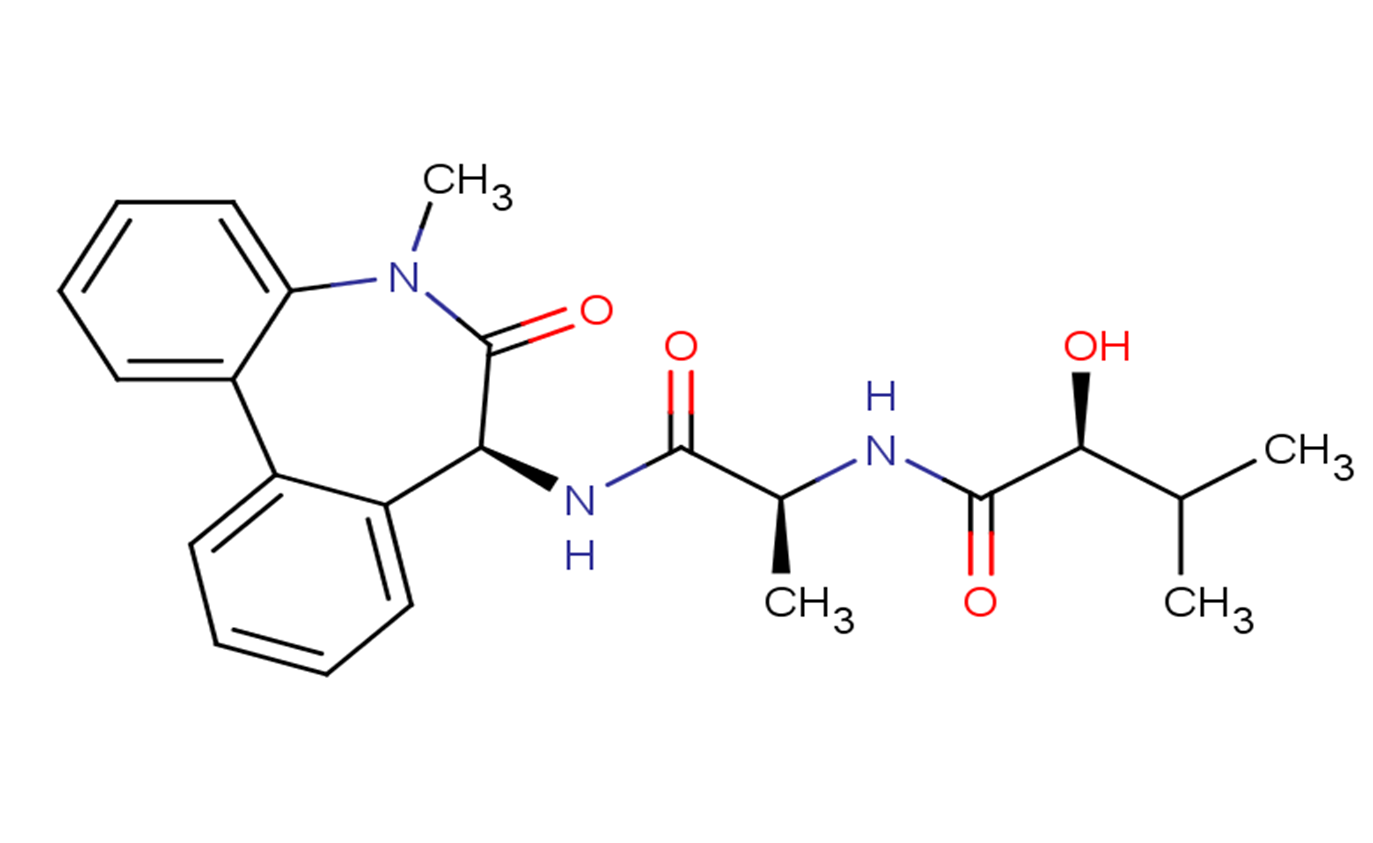
LY900009
CAS No. 209984-68-9
LY900009( —— )
Catalog No. M23950 CAS No. 209984-68-9
LY900009 is a small molecule inhibitor of Notch signalling via selective inhibition of the γ-secretase protein.?
Purity : >98% (HPLC)
 COA
COA
 Datasheet
Datasheet
 HNMR
HNMR
 HPLC
HPLC
 MSDS
MSDS
 Handing Instructions
Handing Instructions
| Size | Price / USD | Stock | Quantity |
| 2MG | 70 | In Stock |


|
| 5MG | 115 | In Stock |


|
| 10MG | 182 | In Stock |


|
| 25MG | 327 | In Stock |


|
| 50MG | 485 | In Stock |


|
| 100MG | 700 | In Stock |


|
| 200MG | Get Quote | In Stock |


|
| 500MG | Get Quote | In Stock |


|
| 1G | Get Quote | In Stock |


|
Biological Information
-
Product NameLY900009
-
NoteResearch use only, not for human use.
-
Brief DescriptionLY900009 is a small molecule inhibitor of Notch signalling via selective inhibition of the γ-secretase protein.?
-
DescriptionLY900009 is a small molecule inhibitor of Notch signalling via selective inhibition of the γ-secretase protein.?
-
In Vitro——
-
In Vivo——
-
Synonyms——
-
PathwayNeuroscience
-
TargetGamma-secretase
-
Recptorγ secretase
-
Research Area——
-
Indication——
Chemical Information
-
CAS Number209984-68-9
-
Formula Weight409.49
-
Molecular FormulaC23H27N3O4
-
Purity>98% (HPLC)
-
SolubilityDMSO:10 mM
-
SMILESC[C@@H](C(=O)N[C@H]1C2=CC=CC=C2C3=CC=CC=C3N(C1=O)C)NC(=O)[C@H](C(C)C)O
-
Chemical Name——
Shipping & Storage Information
-
Storage(-20℃)
-
ShippingWith Ice Pack
-
Stability≥ 2 years
Reference
1.A first-in-human phase I study of the oral Notch inhibitor, LY900009, in patients with advanced cancer[J]. European Journal of Cancer, 2016, 56.
molnova catalog



related products
-
Enoticumab
Enoticumab (REGN421) is a fully human IgG1 monoclonal antibody with anticancer activity that inhibits the growth of cancer cells.Enoticumab binds human Dll4 and disrupts Notch-mediated signaling.
-
BI-1408
BI-1408 is a modulator potent of γ secretase (IC50: 0.04 μM for Aβ42).
-
Fosciclopirox
Fosciclopirox, the phosphoryloxymethyl ester of CPX (Ciclopirox Prodrug, CPX-POM), selectively delivers the active metabolite, CPX, to the entire urinary tract following parenteral administration.



 Cart
Cart
 sales@molnova.com
sales@molnova.com


